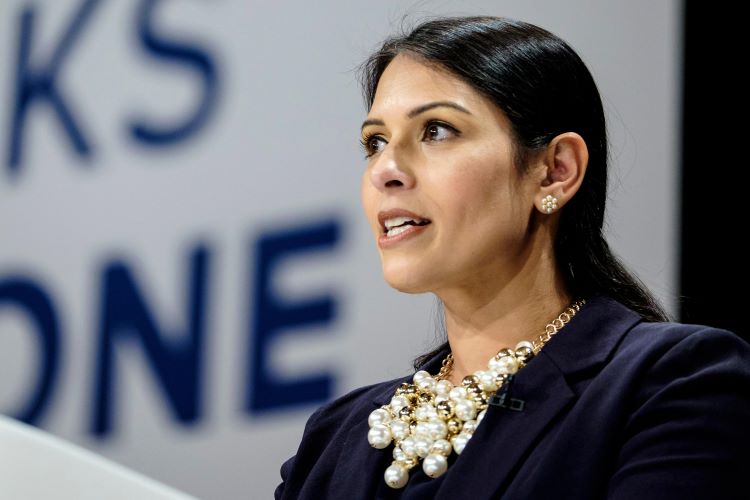Latest Indian Variant Data Is "Very Good" As Ministers Grow More Optimistic
4 min read
The most recent data on the effectiveness of the vaccines against the B.1.617.2 variant of the coronavirus first identified in India is "looking very good," one of the chief scientific advisors to the government has said.
Dr Jenny Harries, head of UK Health Security Agency, told the BBC's Andrew Marr on Sunday that while it was "early days", she and other advisors were "increasingly confident" that the recent surge in cases of the variant would not result in a spike in hospitalisations and deaths.
"There is a technical briefing that the public can access on gov.uk website which shows that up to the 19th of May we had only had six deaths.
"Now, obviously it’s very sad for those individuals, but the vast majority are people who had not been vaccinated and are also elderly," Harries said.
"From that perspective, it is looking very good.
"It is still quite early days and we will be familiar with waiting about two weeks after a surge in cases for hospitalisations and another two weeks for deaths, so we will just have to wait and see.
"But at the moment we are not seeing reductions in effectiveness in serious diseases or deaths and we are feeling increasingly confident that that will be the case”.
In other developments:
- Home Secretary Priti Patel sidestepped questions on why the government didn't put India on the travel red list earlier, telling the BBC's Andrew Marr: "Information was presented to minsters in the right way for decisions to be made around red listing".
- Patel denied Dominic Cummings' claim that the government initially planned to pursue herd immunity before realising it was the "wrong" strategy. Cummings will make a highly-anticipated select committee appearance next week where he will be asked about the government's pandemic response.
- In an interview with Sky News Patel said "lessons have to be learned" for the BBC after an inquiry this week said its former journalist Martin Bashir used deception to secure an interview with Princess Diana.
In more encouraging news, Harries said there were signs of the number of new cases of the variant first identified in India beginning to level off in affected areas of the country.
“The cases of the B.1.617.2 are rising," she said.
"They have risen very steeply – the media has reported a 160% rise in cases over a week period – but they seem to be slightly levelling at the moment, but it is still very early days”.
Home Secretary Priti Patel added to the cautiously optimistic mood, telling Marr that while she didn't want to "pre-empt" whether the removal of remaining lockdown measures would go ahead as planned on June 21st, the latest data "looks good". Public Health England (PHE) announced on Saturday night that two doses of the coronavirus vaccines being administered across the country are "highly effective" in preventing people catching the B.1.617.2 variant.
Public Health England (PHE) announced on Saturday night that two doses of the coronavirus vaccines being administered across the country are "highly effective" in preventing people catching the B.1.617.2 variant.
A PHE study found that both the Pfizer-BioNTech and AstraZeneca jabs had a "minimal reduction" in effectiveness against the variant first identified in India compared to the Kent variant and that they are expected to have even higher levels of effectiveness in preventing hospitalisations and deaths.
Nadhim Zahawi, the minister for the vaccine rollout, said the findings were "astounding" and "a true reflection of just how important it is to get both your jabs when offered".
Matt Hancock, the secretary of state for health and social care, said: “This new evidence is groundbreaking – and proves just how valuable our COVID-19 vaccination programme is in protecting the people we love.
“We can now be confident that over 20 million people – more than 1 in 3 – have significant protection against this new variant, and that number is growing by the hundreds of thousands every single day as more and more people get that vital second dose.
"I want to thank the scientists and clinicians who have been working around the clock to produce this research".
Both Harries and Patel denied the claim made last night by Dominic Cummings that the government's initial plan for dealing with the pandemic was to pursue "herd immunity".
The former chief adviser to Prime Minister Boris Johnson tweeted that the government lied when it denied ever aiming for herd immunity. That was the "original plan" and Johnson "knows" it, he said.
Asked whether that was the government's original strategy, Patel said "absolutely not" and pointed to the government's decision in March 2020 to enforce a strict nationwide lockdown.
Harries said a plan to "allow people to become infected and develop herd immunity” has “never been on the agenda”.
“I can categorically say I have never been in any government meeting where herd immunity was put forward at that point of the pandemic as a mechanism for control," she told Marr.
